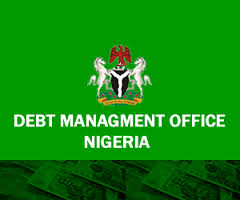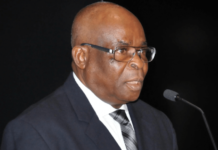Nigeria raised 243.7 billion naira at a bond
auction on Wednesday, almost double the amount it had initially sought,
as local funds and foreign investors piled into longer-term debt to lock
in higher returns, traders said.
auction on Wednesday, almost double the amount it had initially sought,
as local funds and foreign investors piled into longer-term debt to lock
in higher returns, traders said.

Nigeria’s
borrowing costs have fallen from as high as 18 percent a few months ago
as inflation has slowed, helping the government raise money to cover a
gap in its budget.
borrowing costs have fallen from as high as 18 percent a few months ago
as inflation has slowed, helping the government raise money to cover a
gap in its budget.
The Debt Management Office
(DMO) had offered 135 billion naira worth of bonds maturing in 2021,
2027 and 2037, on offer. However, total investor demand stood at 394.8
billion naira, prompting the debt office to increase the size of the
offer.
(DMO) had offered 135 billion naira worth of bonds maturing in 2021,
2027 and 2037, on offer. However, total investor demand stood at 394.8
billion naira, prompting the debt office to increase the size of the
offer.
The DMO paid 15.98 percent for the 2021 bond, 15.90 percent for the 2027 issue and 15.92 percent for the 2037 debt.
Investors
bought more of the benchmark 20-year bond at the auction betting that
the inflation outlook in the West African country is improving, traders
said.
bought more of the benchmark 20-year bond at the auction betting that
the inflation outlook in the West African country is improving, traders
said.
In August inflation slipped for the seventh month running, to 16.01 percent.
A
lawmaker in a motion on Tuesday said Nigeria needs to lower its
interest rates and cut domestic debt to stimulate lending for private
sector investment, which would help boost economic growth.
lawmaker in a motion on Tuesday said Nigeria needs to lower its
interest rates and cut domestic debt to stimulate lending for private
sector investment, which would help boost economic growth.
But
the central bank has said loosening its policy now would worsen
inflation and drive bond yields into negative territory, which could
lead to capital flight and hurt the currency. It kept its main interest
rate on hold at 14 percent on Tuesday.
the central bank has said loosening its policy now would worsen
inflation and drive bond yields into negative territory, which could
lead to capital flight and hurt the currency. It kept its main interest
rate on hold at 14 percent on Tuesday.
Africa’s
biggest economy grew in the second quarter, climbing out of recession
as oil revenues rose, but the pace of growth was slow, suggesting the
recovery remains fragile.
biggest economy grew in the second quarter, climbing out of recession
as oil revenues rose, but the pace of growth was slow, suggesting the
recovery remains fragile.
The country plans to
borrow both locally and from offshore sources to help fund its budget
deficit, which has widened due to lower oil prices slashing government
revenues and weakening the naira currency.
borrow both locally and from offshore sources to help fund its budget
deficit, which has widened due to lower oil prices slashing government
revenues and weakening the naira currency.
Earlier, the debt
office said Nigeria’s debut 100 billion naira sovereign sukuk issue
launched last week was more than 5.8 percent oversubscribed, suggesting
it may tap this demand more to help narrow the budget gap.
office said Nigeria’s debut 100 billion naira sovereign sukuk issue
launched last week was more than 5.8 percent oversubscribed, suggesting
it may tap this demand more to help narrow the budget gap.
Reuters











